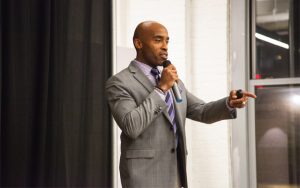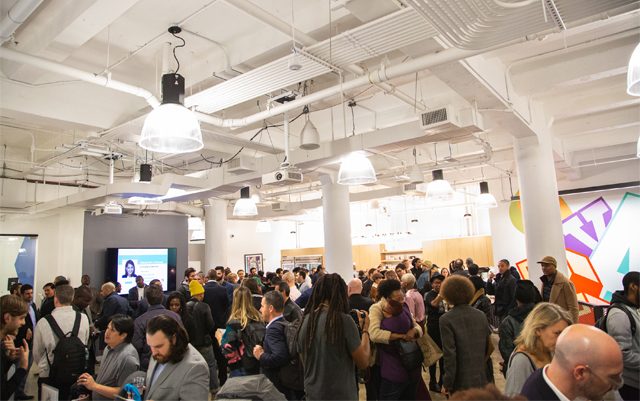New York is a state facing exciting, yet uncertain, times for the future of its cannabis market. Once considered one of the most restrictive medical marijuana markets in the country, New York is now transforming into a slightly progressive policy. In recent months, Governor Andrew Cuomo, a cannabis skeptic at best, has come around to the plant due to pressure from citizens, businesses and lawmakers. Cuomo’s change of heart led to expanded access to medical IDs for PTSD and as a replacement for opioid medications.
A somewhat hotly contested Democratic primary season saw Cuomo advance on cannabis more as progressive challenger Cynthia Nixon offered a night and day platform to what Cuomo had previously supported. Progressive stance switches and endeavors included task forces to investigate cannabis and potentially draft an adult use bill early in the new year.
With New York’s cannabis program expanding one way or another, and with neighboring New Jersey close to legalizing like northern neighbor Massachusetts, the area is buzzing with cannabis interest. New York City serves as a hotbed of pot activity, and we’re not talking about the black market. Cannabis industry networking events are now becoming as common as any other industry meetups.

One of the more notable and well-produced events is Revel. Held once a season in Manhattan, Revel is a showcase of cannabis innovation across the industry from tech to research to business growth. With inspiration as a focus, the event touts some major industry names and offers attendees a chance to network and engage with some of the market’s leading minds.
Revel was co-founded by Lulu Tsui and Jacobi Holland, entrepreneurs themselves with multiple successful ventures to their name. The fall iteration centered on cannabis and capital and offered three guests for the evening: Tiki Barber, Chief Business Development Officer for Grove Group Management and retired NFL running back; Tahira Rehmatullah, Chief Financial Officer for MTech Acquisition Corp; and Jim Makoso, Co-Founder and Vice President of Lucid Labs.

The event began with a networking session that quickly filled the open room with hundreds of attendees. The intersection of traditional cannabis ethos, enthusiasts, hungry investors, business leaders and a dash or two of hipsters and Wall Street bros shined a light on the topics of the day and the potential face of cannabis’ future. Social causes, startups and growing brands lined demo tables, allowing guests to learn a bit about numerous areas of the industry.
Entrepreneurs were in an abundance at the event, and each speaker offered a different perspective on how one can enter the industry. Tiki Barber is a relative newcomer to cannabis after living a life away from cannabis in the NFL and before. While not being in the scene a decade or so ago, he still sees change coming. “I see it’s legitimizing…You see private equity money, big executives, investments from the major players, even if it’s quiet investments. It’s happening.”
Meanwhile, with five years of experience in the industry, Tahira Rehmatullah is already considered one of the most powerful women in cannabis, a title she is honored to have but amusingly played off. “It’s been a very humbling honor to be recognized that way. I think the assortment of my experience and amount of time in the space…In any other world, that is not a lot of time to be in an industry. But it cannabis, in the pre-fad days, is like night and day.”
For Jim Makoso, he returns to his New York roots around once a month. While excited for business in New York State, he notes the high level of competition, capital and bureaucracy that come with trying to enter the state’s market. One immense pain point is the cost of entry. “The interesting thing is that even though the market is developing out here, it is nothing like what you see in other parts of the country.” Instead, he pointed towards markets like Massachusetts, the western states and the recently legalized Canadian market. He also pointed out the high cost of entry for New York entrepreneurs. “In New York, you’ll need somewhere between $10 and $20 million to compete.”

While raising capital was a prime focus of the evening, social justice causes were not far behind. Pressing topics such as inclusivity and policy reform were on the lips of many attendees as well as the speakers. Barber and Rehmatullah both include social justice as pillars of their work in the industry.
Barber detailed how CEO Kevin Shin’s executive board included a law enforcement executive which helps Grove join the conversation with law enforcement on issues surrounding regulating cannabis consumption, driving and other topics. In addition to talking with law enforcement, Barber emphasized how business leaders can do their part to give back to communities disenfranchised by the failed drug war. While providing more elaborate steps, Barber provided a concise starting point, “The short answer is to invest in those communities.”

Rehmatullah’s years in the industry leave her needing to bring up a point that may dampen some spirits – despite its need to be addressed. She noted that over the boom of the past year and a half that the industry, “looks a lot like other industries, which is not a positive thing.” Rehmatullah noted the change occurred in part due to the shift from the risk-taker, outlaw black market approach to a more capital driven mindset. “You don’t see women on boards. You don’t see people of color. I think the industry has taken a couple steps back.”
The same risk-taker spirit Rehmatullah mentioned can also encompass the boom of technology entering the space today. While seen by some as a wave of innovation, Makoso pointed out that cannabis is just entering the public after years in the dark. “[Prior to now], there were people already doing good technological work but couldn’t be in the public forum because it was illegal.”

With the discussions swirling around the aforementioned topics, each speaker shined a light on their industry focus, passions and insights for the attentive crowd. At one point during Barber’s presentation, a significant portion of the room pushed back on Grove’s culturally diverse yet all-male executive board. This led to Barber inviting one attendee to engage on the issue on-stage during his segment. While beginning tense, the issue was explored with some understanding coming at the end. Though some may not have agreed with his answers, Barber received a round of applause for promoting open dialogues between people as an opportunity for growth in the industry and as people.
In all, Revel represents a growing number of networking events in New York that are just the beginning. Makoso noted that the next step in the city and state’s cannabis immersion could come from science-centric cannabis forums like ones he’s attended and spoken at out west. Regardless of where it goes, New York City serves as a beacon for cannabis growth on the east coast. While much more progress remains outside of cities, the times are changing. What was once the underground is now on the verge of becoming just another industry networking event. If the sector can incorporate these aspects of business while enhancing its inclusion efforts, then cannabis may one day be the legitimate, ethical industry advocates always knew it could be.






